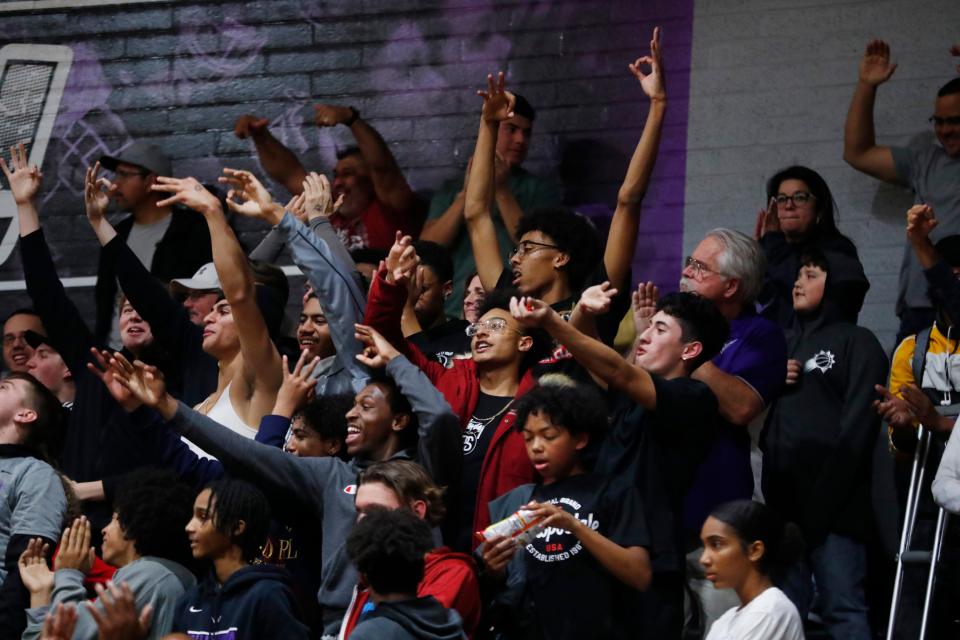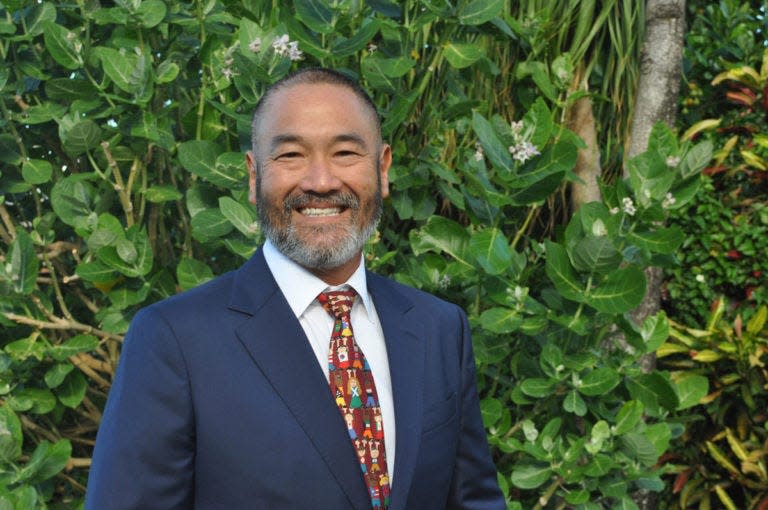We don't need orders from states or Congress on teaching race. We know our students best.
As educators wrap up the 2020-21 school year and prepare for a “new normal” this fall, one of the tasks on deck is curriculum planning. In talking to school leaders around the country, I've heard many concerns regarding state legislatures deciding how individual schools teach students about race and racism in American history and train educators on diversity, equity and inclusion. The National Association of Secondary School Principals believes that those in the schools – educators and school leaders – should make curriculum and professional development decisions, not those in state or federal Capitol buildings.
Local control is the heart of the U.S. education system at the primary and secondary levels. Communities within one state vary widely, as do their needs and priorities. That’s why our education system prioritizes school decision-making at the local level. Of course, there are standards and benchmarks that apply to all schools when it comes to curriculum. Significant and specific commonalities, such as subjects taught and concepts covered, exist for good reason.
Advance racial justice and equity
Based on my years of experience in education, districts moving the needle toward improved student outcomes and school performance have one thing in common: They are actively involving and engaging their educators in deep conversations about standards, curriculum and instructional strategies. The specific content and the ways in which it is taught should be decided by and with the experts: teachers and school leaders.
Teachers know the mix of students in a given classroom, and principals know the mix of students in each grade – as well as the larger context, challenges, strengths and demographics of the whole school. Principals are intimately familiar with the inner workings of their buildings, the myriad personalities, strengths and weaknesses of students and staff, which kids and teachers are soaring and which need more support.

Principals develop and nurture relationships with families and community members, ensure students’ cultural backgrounds and home languages are recognized and respected, and create schedules and structures that allow families to engage authentically in school activities and decision-making. What to teach and how to teach it in a way that advances students and their learning is a nuanced decision best left to those who work closest with our students.
Critical race theory: My Texas public school sanitized history, facilitated injustice
Creating schools that support student success goes beyond lessons. School leaders are instrumental in creating school cultures that honor, celebrate, affirm and defend the rich diversity of identity, culture, race, language and community that students and staff bring into the building. Principals have the power to identify racism, implement anti-racist strategies, lift up students and staff of color, and ultimately make our schools and our society more inclusive and just.

NASSP has long condemned the structural, institutional and systemic racism pervading every dimension of American life, including education. As a national organization, we call on school leaders to embrace and advance racial justice and educational equity.
At its core, equity is a commitment to social justice, civil rights and human connectedness. That’s why, in our Racial Justice and Educational Equity position statement, NASSP highlights the critical role that principals and assistant principals play in creating culturally responsive and equitable learning environments for all students.
Politicians are not education experts
NASSP encourages school leaders to: implement diverse recruitment and hiring practices; hire educators with experience teaching about race and inequality; provide professional development that prepares teachers to address incidents and facilitate discussions about racism, bias and identity; and ensure the curriculum includes narratives and representations of diverse people – including the unjust systems under which they have been oppressed and ongoing struggles for justice.
School leaders have a responsibility to ensure that history, social studies and civics curricula and instructional materials include accurate representations of the pivotal role race has played in American history and governance, and the traumatic and long-lasting impact of slavery on our society.

They have a responsibility to explore how an anti-racist lens can be applied to the teaching of all subjects, including math and science. They have a responsibility to examine disaggregated data and policies on grading, discipline and access to advanced courses with the goal of rooting out inequities. And they have a responsibility to familiarize themselves with culturally responsive pedagogy and support teachers in their efforts to examine their own implicit biases and make their teaching practices more equitable and inclusive.
Bad teaching: Bans on critical race theory in schools narrow reality and sell out kids
State and federal legislative bodies are not education experts, and they cannot know the individual people and communities that make up a school’s ecosystem. But educators and school leaders do. They are experienced and skilled professionals who should be making curriculum decisions based on their deep expertise in what children need to know, how they actually learn – and who they really are.
Ronn Nozoe is the CEO of the National Association of Secondary School Principals. In his home state of Hawaii, Ronn served as deputy state superintendent, district superintendent, principal, vice principal and teacher. Follow him on Twitter: @RonnNozoe
You can read diverse opinions from our Board of Contributors and other writers on the Opinion front page, on Twitter @usatodayopinion and in our daily Opinion newsletter. To respond to a column, submit a comment to letters@usatoday.com.
This article originally appeared on USA TODAY: Local schools can teach race and fight racism, no politicians needed

 Yahoo Movies
Yahoo Movies 